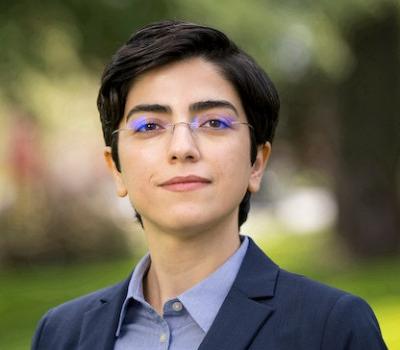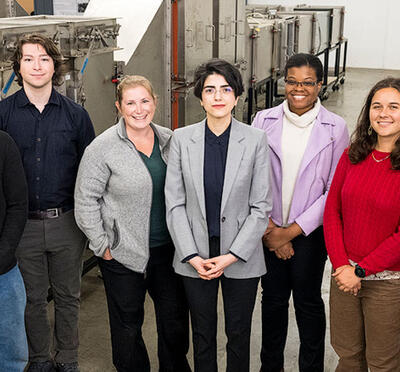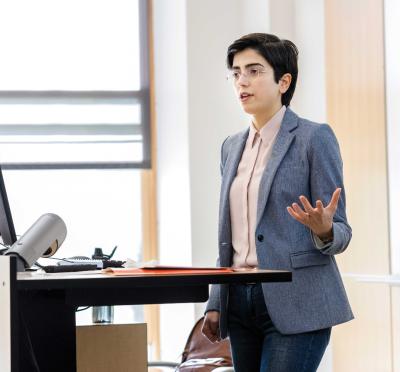
Parichehr Salimifard
Sch Civil & Construction Engr
236 Owen Hall
Corvallis, OR 97331
United States
Dr. Parichehr Salimifard is an Assistant Professor at the School of Civil and Construction Engineering and leads the Sustainable, Healthy, and Resilient Buildings lab at Oregon State University. Dr. Salimifard’s academic career journey as well as her research projects reflects the cross-disciplinary nature of the Sustainable, Healthy, and Resilient Buildings, as it has crossovers to fluid dynamics, aerosol science, energy efficiency, sustainability, and environmental health. Her research projects focus on the connections between indoor air quality, building energy performance, emissions footprint of buildings and their climate impacts, and public health impacts of buildings, and how to leverage building science to design and operate buildings that are sustainable and healthy and are also resilient toward the major challenges we have been dealing with such as climate change, wildfire, and pandemic.
One of Dr. Salimifard’s main research areas is indoor environmental quality, particularly control and mitigation of building occupants’ exposure to contaminants and allergen- and virus-carrier particles indoors. Dr. Salimifard has conducted research on aerosols dynamics and sensing; more specifically on particle transport, deposition, and resuspension, and aerosol sensing and size characterization. The most recent and emergent contributions of these research projects are in wildfire and COVID-19 exposure mitigation and control. Some of her recent projects focus on improving IAQ during wildfire events, and particularly focusing on schools, preschools, and daycares, as children are of the most vulnerable population to exposed to wildfire smoke.
Dr. Salimifard has also led the Co-benefits of Built Environment (CoBE) project, during her postdoctoral research at Harvard T.H. Chan School of Public Health, investigating the energy savings, emissions reductions, and health and climate co-benefits of improving the sustainability in the built environment. Currently, she is leading the CoBE team at Oregon State University, as a Co-PI of the CoBE project, and collaborating with other CoBE team members at Harvard and Boston University. The teams are working closely together to develop the next versions of CoBE tool and its various modules including co-benefits of specific climate policies, water savings co-benefits of built environment, energy conservation pathway optimization, and building-to-grid integration.
Her research projects have been funded by federal agencies and professional societies such as EPA, NIEHS’s OSU ASPIRE Center, and ASHRAE, as well as industry and foundations.
Selected Research
- Health Co-benefits of Built Environment (CoBE)
- Wildfire Smoke Preparedness in Buildings
- Indoor Aerosol Resuspension Dynamics
- Indoor Aerosol Sensing
In The News
- Co-benefits of Built Environment
- Harvard School of Public Health: New methodology reveals health, climate impacts of reducing buildings’ energy use.
- Washington Post: “Want to phase out fossil fuels? We must fundamentally change our buildings.”
- The Hill: Biomass is not health neutral.
- NPR: Harvard Study Says Clean Electricity Will Prevent Premature Deaths.
- Huffington Post: Cleaner ‘Bridge’ Fuels Are Killing Up To 46,000 Americans Per Year, Study Shows
- Harvard Center for Climate, Health, and the Global Environment (C-CHANGE): Harvard Chan School study shows negative impacts of burning natural gas and biomass have surpassed coal generation in many states
- Drilled Podcast: New Study: The Health Impacts of the Coal-to-Gas Transition
- Inside Climate News: Coal Phase-Down Has Lowered, Not Eliminated Health Risks From Building Energy, Study Says
- E&E News: Deaths linked to soot from gas, biomass overtake coal

